-
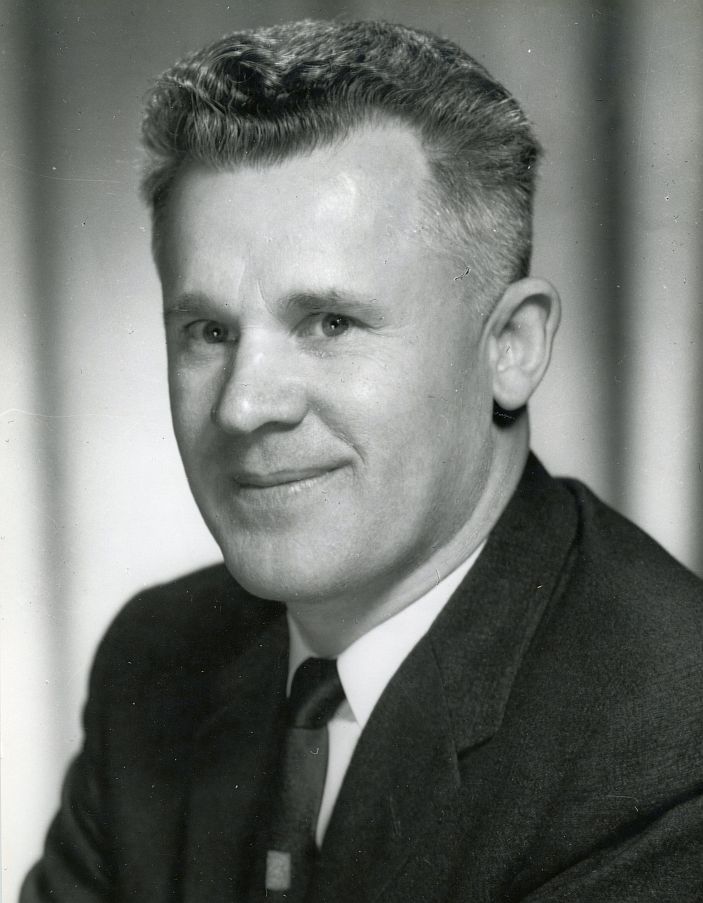
Writer Anatolijus Kairys. Photo by V. Maželis
The participants of the LWA Congress held in Cleveland decided to form the new board of directors from writers living in the Chicago area. The Brazdžionis board turned to the writer Anatolijus Kairys, who agreed to assume the position of chairman, though very reluctantly. In a letter to his colleague Vytautas Volertas, dated March 3, 1983, he complained: “as we chose our duties on the board, I took the burden of president upon myself – no one else wanted to take it! Fortunately, Grincevičius agreed to be the vice-president, so perhaps I’ll endure the three years somehow, and then you should prepare yourself... ” Kairys stayed as president for one term, from 1983-1986.
-
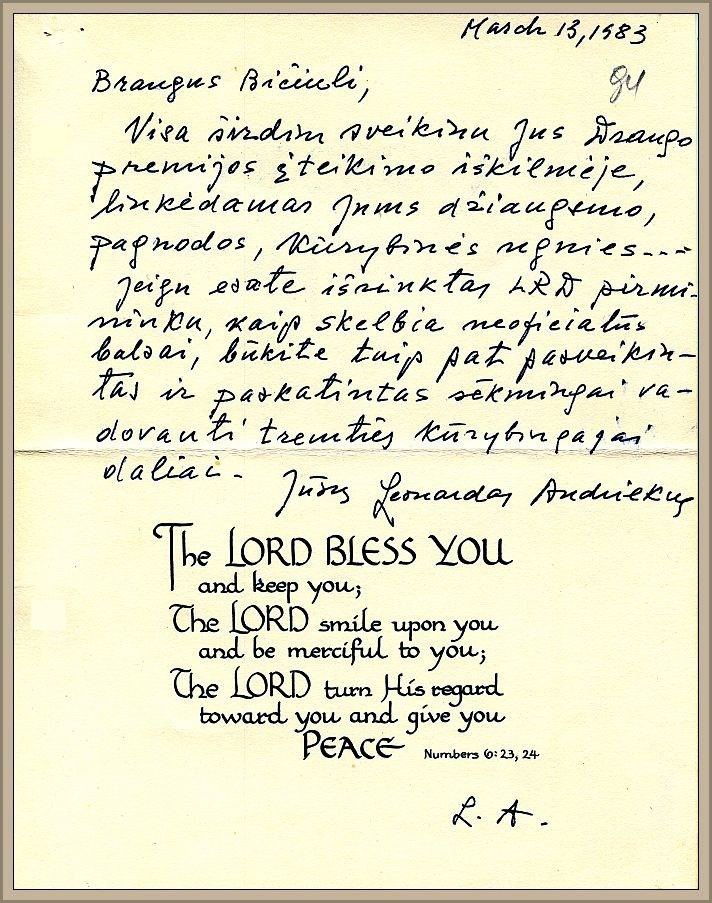
Letter to Kairys from the former LWA president Andriekus, March 13, 1983.
Following tradition, the new president was congratulated by previous presidents of the organization. The former longtime chairman, Andriekus, wrote to Kairys in March of 1983, congratulating him not only on his new position, but also on winning the Draugas newspaper’s award for his novel Kelionė į Vilnių (Journey to Vilnius; Chicago: Lithuanian Book Club, 1983).
-
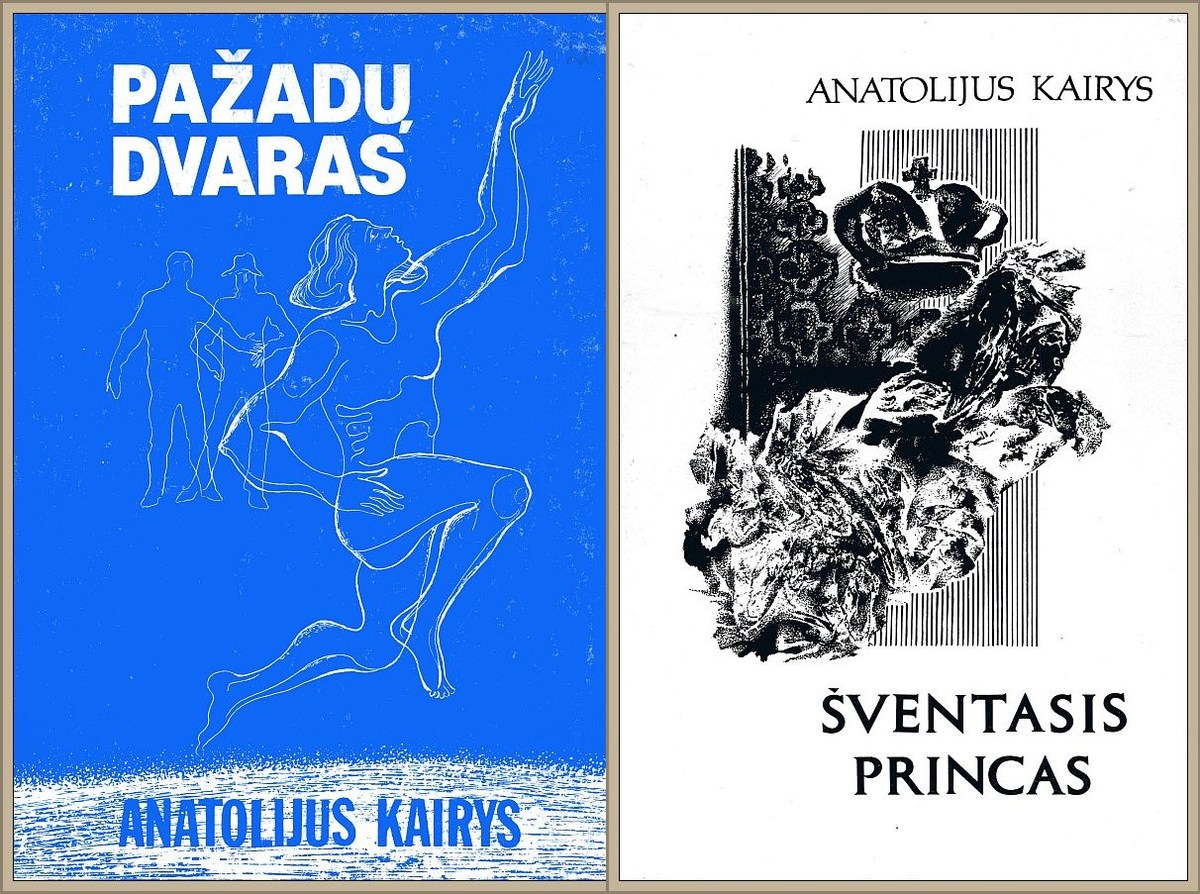
Covers of Kairys’ prize-winning works.
Kairys received two more awards that year: the Association’s Literature Award of 1982, for his novel Pažadų dvaras (The Manor of Promises; Chicago: Lithuanian Book Club, 1982). This award was comparable to the Nobel Prize, according to some contemporaries, such as Rūta Alė. Kairys also won the Drama Contest organized by the Los Angeles Lithuanian Drama Group for best play – his winning script was Šventasis princas (The Sainted Prince; Chicago: Committee to mark the 500-th anniversary of St. Casimir death, 1984).
-
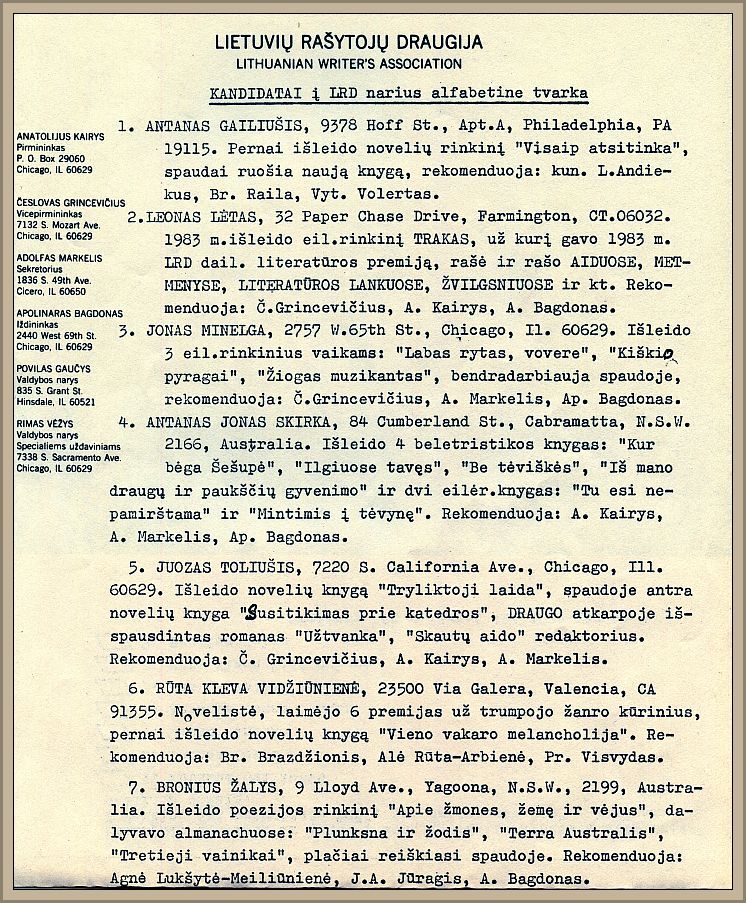
The list of candidates for LWA membership.
During Kairys’ chairmanship, the Association accepted seven new members: Antanas Gailiušis, Leonas Lėtas (winner of the Association’s Literary Award in 1983), Jonas Minelga, Antanas Jonas Skirka, Juozas Toliušis, Rūta Kleva Vildžiūnienė, and Bronius Žalys.
-
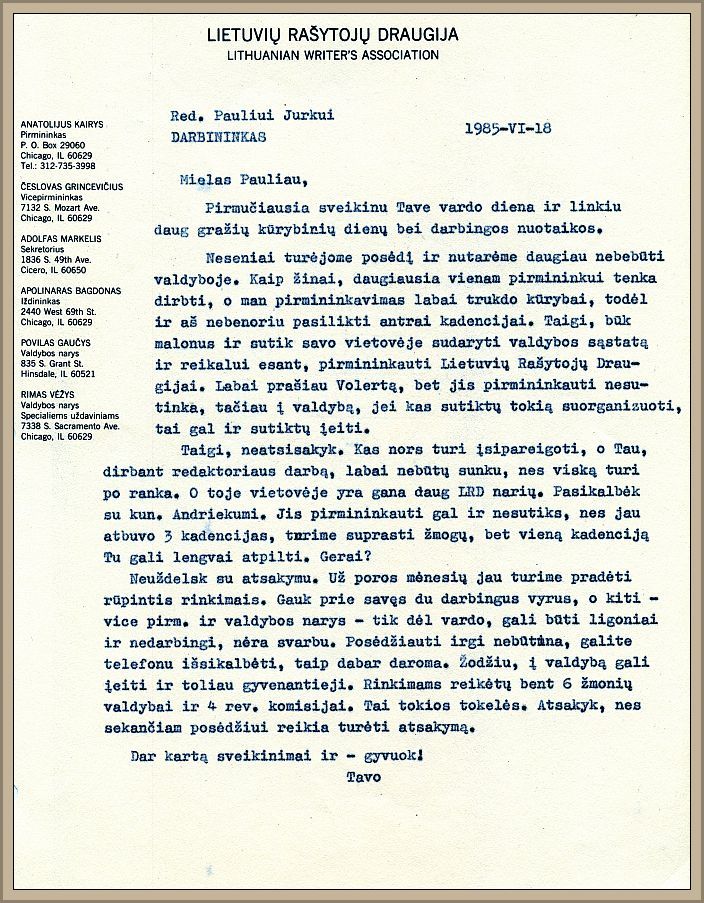
Kairys’ appeal to Jurkus, April 18, 1985.
As his term of office neared its close, Kairys appealed to Paulius Jurkus, editor of the Lithuanian newspaper Darbininkas (The Worker) published in Boston, MA, asking him to become the new president. From the time the LWA was established in the US, it was never easy to find people willing to take charge of the organization or to serve on its board. This situation became more severe during Kairys’ term of office. Perhaps this is the reason Kairys wrote: “Get yourself two hard-working men and the other positions – the vice-president and the member-at-large can be nominal; they can be in ill health or unable to work, it does not matter.” This letter is dated April 18, 1985. Jurkus’ reply was short: “No, I do not have time. … I do not want new responsibilities.” Kairys had no choice but to trade positions with Česlovas Grincevičius, the board’s vice-president.
-
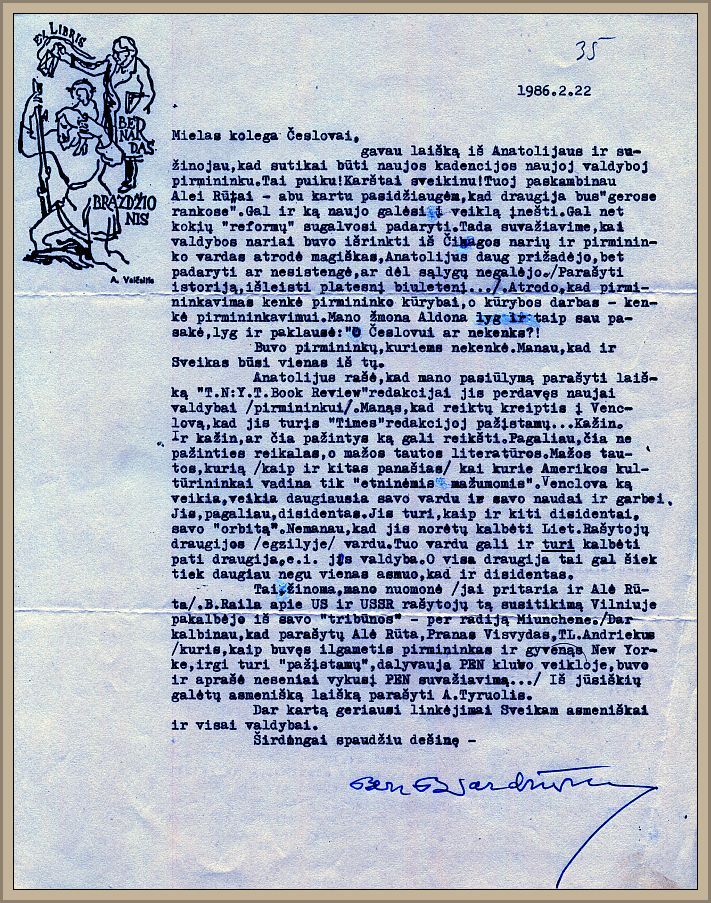
Letter from Brazdžionis to the new LWA chairman, 22 February, 1986.
The change of office took place on 15 February, 1986, while the rest of the Board remained the same: Adolfas Markelis – secretary, Apolinaras Bagdonas – treasurer, Povilas Gaučys – member, and Rimas Vėžys – member for special projects. B. Brazdžionis evaluated Kairys’ term in his letter of greeting to the new chairman. “Anatolijus promised a great deal, but either did not endeavor to carry it out or was prevented by conditions. (To write a history, to publish a bigger bulletin …) It seems that being chairman undermined his creativity and the creative work interfered with carrying out his duties.” Brazdžionis posed a question to Grincevičius, “Might that also hurt Česlovas?!”
-
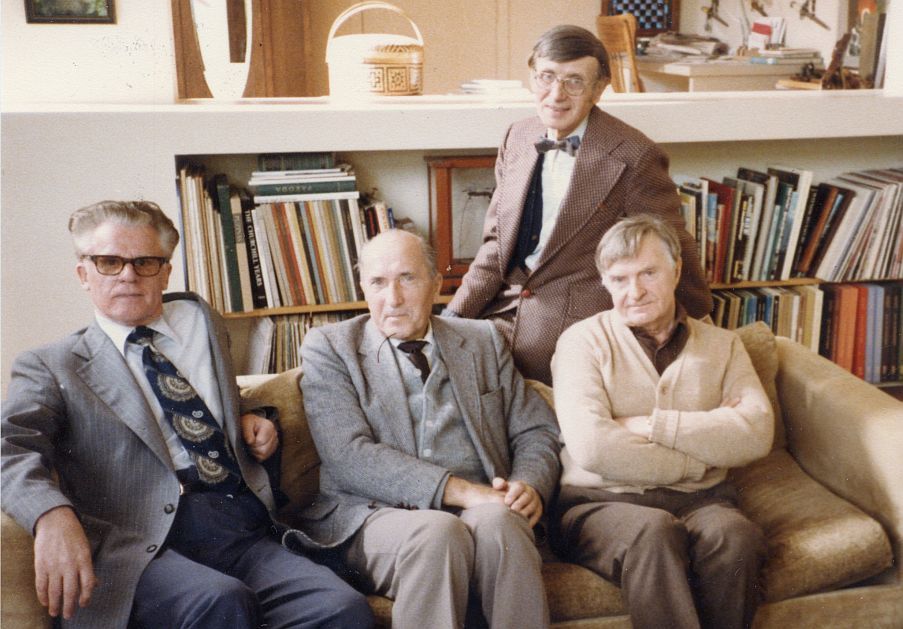
The LWA Board of Directors chaired by Grincevičius. From left: A. Kairys, Č. Grincevičius, A. Bagdonas, and A. Markelis. (P. Gaučys and R. Vėžys are missing)
The style and activities of Grincevičius’ board did not differ significantly from those of Kairys period. During his term of office, the board actively corresponded with Association’s members and also non-members; it presided over the literary awards, organized celebrations and literary events, and accepted new members. It is worth mentioning that the LWA Board sent a telegram in 1988 to the Lithuanian Writers’ Union in Vilnius, demanding the release of writer, journalist, and political prisoner Gintautas Iešmantas. The Board also sent a letter to French writers, inviting them to establish closer ties with Lithuanian writers outside of Lithuania. Grincevičius’ term ended at the close of 1988.
